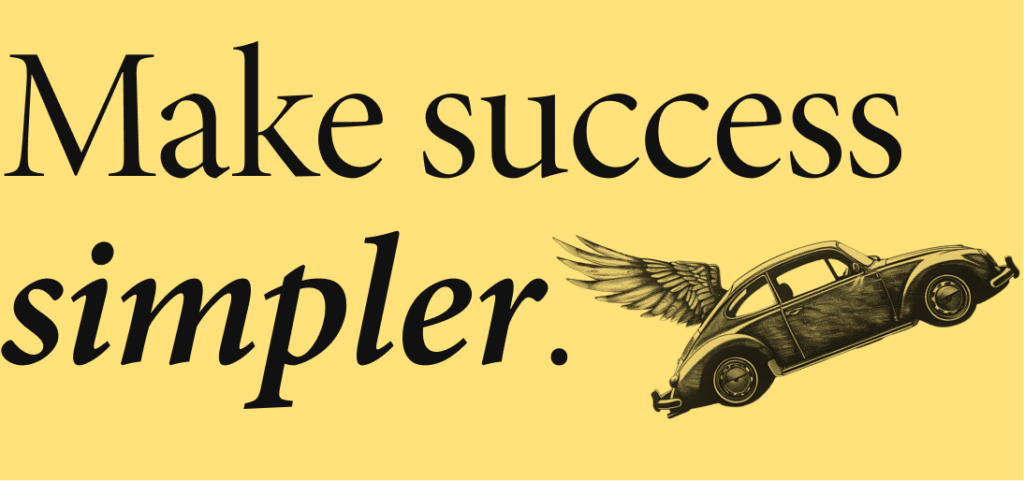Welcome to One Thing Better. Each week, the editor in chief of Entrepreneur magazine (that’s me) shares one way to be more successful and satisfied — and build a career or company you love.
Today’s one thing: Worrying about what they want.
That one thing, better: Figuring out what they need.

If you’re feeling under pressure, then please consider these two statements:
- People expect things of you.
- People need things from you.
Now, let me ask: Are these the same thing?
The answer might feel like yes. If you’re the boss, people expect and need you to be a good boss. If you’re on a project, people expect and need you to be a top performer.
But this isn’t exactly true.
If you’re struggling with imposter syndrome, or worried that you’re not doing a good job, or afraid everyone thinks you suck — well, you might be confusing expectation and need.
Today, I will help you untangle those things. It’s time to ignore what people expect, figure out what they need, and then win them over.
To start, I’ll share how this thinking transformed the CEO of Whole Foods — and changed the course of supermarket history.
The most unlikely leader

In the early days of Whole Foods, cofounder and CEO John Mackey had a problem: Nobody took him seriously.
He had no business background, looked like a hippie, and did a lot of psychedelics. Many people were mean to him! “You’re not like a CEO is supposed to be,” one employee told him. A cofounder nicknamed him Wacky Mackey.
He kept wondering: How could he be himself… while also being CEO? Then he had a revelation: “I’m not trying to be a CEO,” he said.
John told me this recently, when I interviewed him about his insightful new book. I asked what he meant — how could a CEO not care about being a CEO?
His answer was powerful:
I’m making a distinction between CEO and leader. A CEO is a position of authority. It’s a role. You’re the person in charge of the company if you’re CEO, but you may not be a good leader. You may have just played a good game and gotten promoted. But leaders are those who others want to follow.
A good leader inspires people and has integrity. We trust people we know that are in service to the business, and that aren’t in it just for themselves.
In realizing this, John had identified the important difference between expectation and need — and it goes like this:
People don’t always need what they expect.
What’s the difference between the two? John is a perfect case study.
John didn’t dress or act the way people expected. But for the sake of argument, imagine that he did. Imagine that John wore a suit, spoke formally, and never took drugs.
Would all that, by itself, make him a good boss? Would all that, by itself, make Whole Foods successful?
The answer is no. That stuff was irrelevant.
So what was relevant? That’s what John obsessed over. During his 44 years as CEO, he thought about how to create a caring, supportive environment. And he told me this:
I asked myself a question all the time, that I think other entrepreneurs should ask: What does the company most need me to do now?
If there’s something you’re good at, you want to keep doing it, because you enjoy it. But I found that I had to let go of those things, because the company no longer needed me to do them.
I’ll give you an example. In the early days, the most important decisions we could ever make — besides hiring good people — were the locations. So I headed up the real estate team for several years. I was good at it, and I liked it. But eventually, that wasn’t the most important thing the company needed me to do. So I stopped. Instead, I was forced into new situations. The company needed me to be more involved in PR as the face of the company, for example. And I made a lot of mistakes in PR! But it’s what the company needed.
John didn’t care about what people expected. He did care about what they needed.
He also had the courage to know and care about the difference.
New to this newsletter? Subscribe!
So, what do people need from you?
That’s the question you should obsess over — and when you start to ask it, questions about expectations start to fade away.
Because here’s the thing: Once you do fulfill people’s needs, you can shape their expectations.
That’s what happened with John, right? He didn’t meet people’s expectations of a CEO — but once he built a successful company, he shaped people’s expectations. Then they expected him to be an eccentric, thoughtful, reliable leader.
I remember this happening at my first magazine job. I was inexperienced and overwhelmed. I didn’t talk or dress like my colleagues, and worried about standing out from them. But did the magazine need me to talk or dress a certain way? No, it needed me to write great and surprising stories — and once I did, everyone embraced me for how I was.
Now think of some of the most important people in your life…
You developed an unexpectedly strong friendship with someone. Was that the person you expected, or the person you needed?
You found an incredible collaborator, who helped you achieve things you couldn’t do yourself. Was that the person you expected, or the person you needed?
You didn’t take someone seriously when you began dating, but they became the love of your life. Was that the person you expected, or the person you needed?
Those relationships worked because expectations are not the same as needs.
So, here you are — in a new role, or doing a new project, or in a new relationship, and you’re feeling the pressure. Are you an imposter? Are you unprepared? Are you trying to be something you’re not?
The answer is this: Doesn’t matter. Wrong questions.
The only question is: Do you know what they need?
If yes, act. If no, find out. Be their solution. Be their hero. Forget the person they’re comparing you against, because that person isn’t you. When you have what they need, they will want you — and only you. And they will expect and want (and need) you just the way you are.
That’s how to do one thing better.
